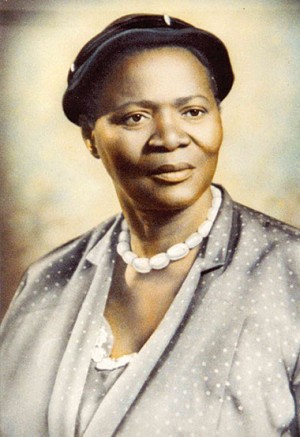The Hidden Story of the Amakhosikazi
In the annals of African history, their stories are the stories of the powerful and the influential.
Mnkabayi, the kingmaker. Nandi, a political strategist. Bhibhi, a prominent figure silenced by assassination.
All were respected members of the Zulu kingdom in the continent’s southeast during the 19th century. More important, all were women.
Caellagh Morrissey has painstakingly stitched their lives together with the fleeting offhand references she has uncovered from historical records that extensively covered the affairs of men. The result is a series of thoughtful profiles that constitute her thesis, written at a propitious time: scholars are just now beginning to sit up and take notice of this elite community of women long overlooked.
A major in history and international studies, Morrissey was frustrated with how little she knew about the continent where her family had long volunteered for the Peace Corps. She penned a paper sophomore year on precolonial South Africa that “showed promise” in her professor’s words, and now she’s eagerly revisiting it as the foundation for her senior thesis, a requirement for graduating from the Clark Honors College.
First, she surveyed the existing research. South Africa’s “amakhosikazi”—elite queens, princesses, regents, and matriarchs—are beginning to draw the interest of historians. Morrissey and Lindsay Braun, an assistant professor of history, worked to develop an angle for her line of inquiry that would bring new knowledge to the field. She chose to focus on factors that caused the decline in power of this female class over the golden era of the Zulu kingdom, 1816 to 1906.
 Morrissey (left) also had to account for the fact that most history on the Zulu people was written by European colonists, carrying their biases; Zulus passed along their histories orally, through poems, proverbs, and riddles. Working from recordings of these oral histories preserved by researchers, she was able to develop a “counter-narrative” to the settler-centric point of view.
Morrissey (left) also had to account for the fact that most history on the Zulu people was written by European colonists, carrying their biases; Zulus passed along their histories orally, through poems, proverbs, and riddles. Working from recordings of these oral histories preserved by researchers, she was able to develop a “counter-narrative” to the settler-centric point of view.
Mostly, though, Morrissey dug through mountains of historical information about male rulers, unearthing the occasional gem regarding the women who were integral to the power structure—either behind the scenes or, occasionally, on full display.
“There’s a sentence here, a sentence there,” Morrissey said. “Considering the amount we have on the male figures, the difference is astonishing.”
Among her favorite figures is Princess Constance Magogo, the daughter of the last Zulu king recognized by the British.
Magogo came of age as the imperialists were overwhelming Zulu rule; she wielded none of the power of her female forebears. Instead, Magogo endeavored to preserve her family’s place in history in a small but significant way—she became an expert on Zulu traditional music, arguably the era’s most important authority on the subject.
Morrissey even unearthed a recording of Magogo singing. Although the lives of the women she studied were captured almost entirely by the written word, it was this simple audio artifact—a woman in song—that reinforced in Morrissey her ethic of careful responsibility for her subject matter.
“To hear that woman singing, it gave (my research) a human touch,” Morrissey said. “Finding somebody’s story is really an incredible moment. I want to honor the past and bring some dignity to the memory of these women who have otherwise been erased.”
—By Matt Cooper


 Twitter
Twitter Facebook
Facebook Forward
Forward